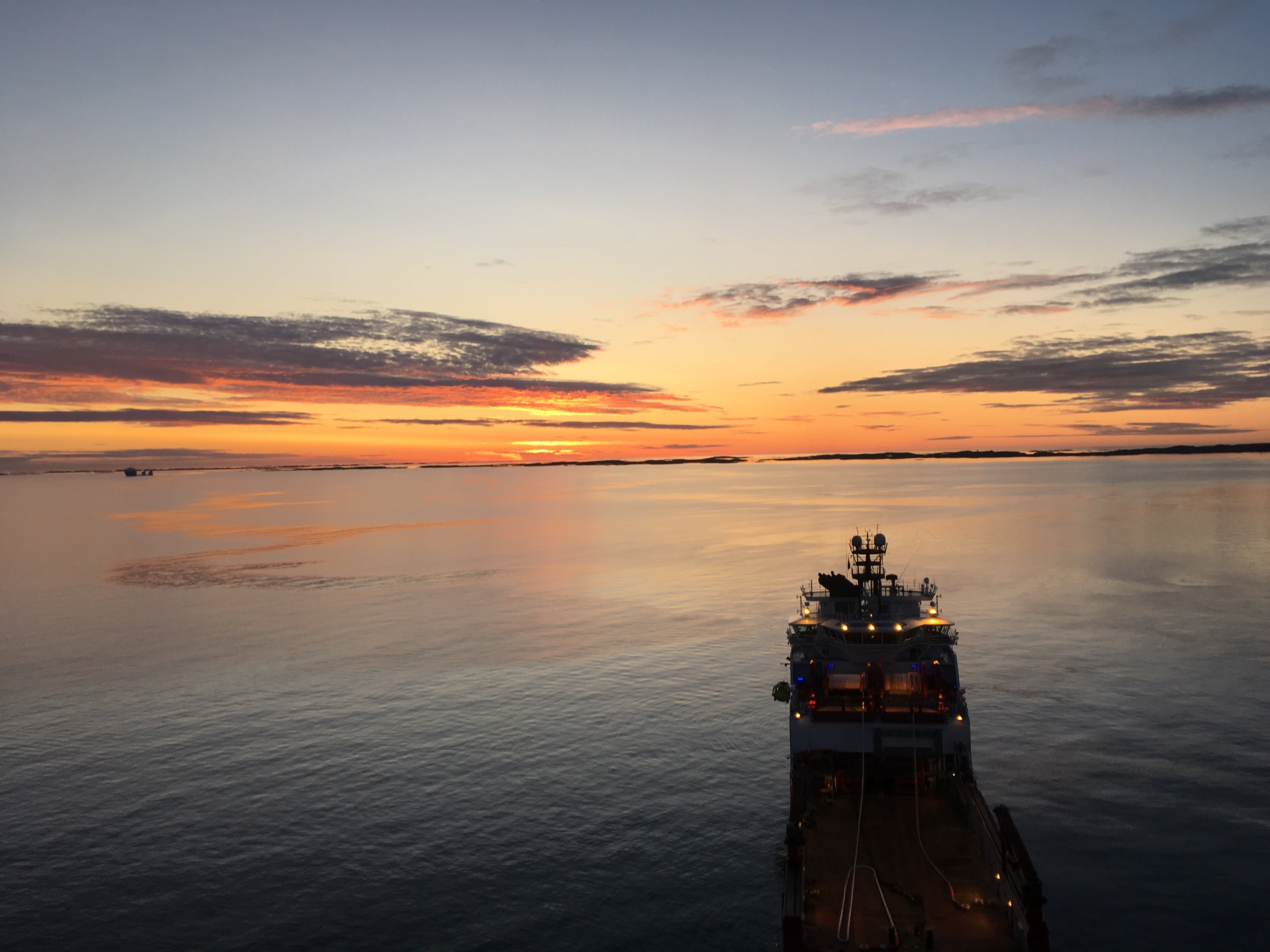
An article by John Butler, Business Stream Director – Marine Services, outlining how we can support clients in achieving a more sustainable and financially resilient operating model for their fleet.
Currently the energy industry is in a hyper cycle of activity - technologically, ethically, and geopolitically. At no time in history has there been so many variables at play that influence society, security, and the economy.
Over the past five years, we have seen a steady rise in decarbonisation across the marine sector. Initially, this focused on the build-out of fixed offshore wind, followed by floating wind developments. Today, the shift toward maritime decarbonisation is accelerating, driven by regulatory changes and a growing emphasis on sustainability.
In October 2025, the International Maritime Organization (IMO) was widely expected to implement its Net Zero Framework (NZF). However, adoption has been delayed by 12 months. Nevertheless, once adopted the NZF will initiate a global plan by the IMO with the intention to make international shipping reach net zero for GHG emissions by 2050. It also sets fuel efficiency and emissions rules for ships greater than 5,000 GWT and introduces a payment system where cleaner ships are rewarded and higher-emitting ships must pay into a fund that supports greener technology and developing countries. This framework will legally take effect in 2027, and ships will need to start following the new rules from January 2028.
The momentum has not abated. Just this week, the IMO hosted a side event at COP30, titled “Charting the Course of the Energy Transition in Global Shipping.” The session reaffirmed the need for shipping decarbonisation and emphasised that global shipping must accelerate toward net-zero emissions. In the short and medium term, this will be driven by innovation and first-mover action - particularly in shipping technology, alternative fuels, and port infrastructure.
Once implemented, the NZF will be a transformative milestone for maritime shipping, prompting vessel owners to futureproof their fleets for sustainability. At Global Maritime, we recognise the responsibility we have as a marine consultancy to support our clients in this transition. We have developed digital tools to support clients in their environmental management. Our Pollution Prevent Management System, (PPMS), provides assured MARPOL compliance and establishes a baseline for the environmental compliance of marine assets. The purpose of the PPMS is not only to identify environmental gaps but to provide the feedback on areas of improvement that reduces operating costs, minimises environmental impact and verifies compliance.
As a business our opportunity is to help our clients navigate their way to a more sustainable and financially robust operating model for their fleet.
We are seeing an increased trend in the use of alternative marine fuels in shipping. The three main alternative fuels are Green Hydrogen, Green Methanol and Green Ammonia. Although there is often heated debate over which fuel provides the best solution for the maritime sector, it is important to recognise that both methanol and ammonia are derivatives of hydrogen. So regardless of your loyalty to one fuel type or another the baseload stock is Green Hydrogen.
It is also important to recognise that when it comes to alternative fuels there is no “silver bullet”. Alternative fuels will only work when partnered with fuel efficiency. Managing your vessel efficiency can delivered through digital solutions to optimise your route selection, digital port operations which facilitates “just in time” management of vessel movements, thus decreasing fuel burn. Finally, propulsion technologies such as rotate sails for wind assist are becoming more commonplace. By utilising these technologies, we can optimise operations, increasing fuel efficiency paving the way for alternative fuels such as Green Hydrogen or its derivatives.
In conclusion, the maritime industry stands at a defining moment where sustainability, innovation, and regulation intersect to reshape the future of global shipping. The focus will continue to be placed on the IMO Net Zero Framework, with this, the sector’s collective drive toward decarbonisation will accelerate the adoption of clean fuels, digital optimisation, and efficient vessel management.
Global Maritime remains committed to guiding clients through this transformation by combining decades of operational expertise with advanced environmental and digital solutions. Our focus extends beyond compliance — we aim to enable a resilient, future-proof maritime ecosystem that supports economic growth while safeguarding the environment. Whether through pioneering projects such as Hywind Scotland, advancing digital environmental management systems, or supporting the adoption of green fuels, Global Maritime continues to play a pivotal role in shaping a cleaner, more efficient maritime future. The journey to net zero is well underway, and collaboration will be key to achieving it.